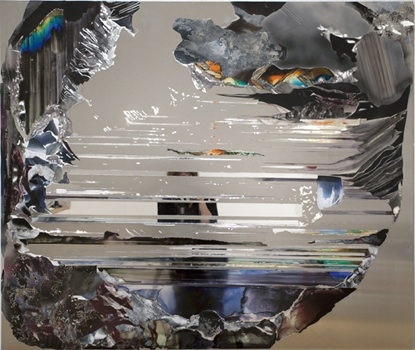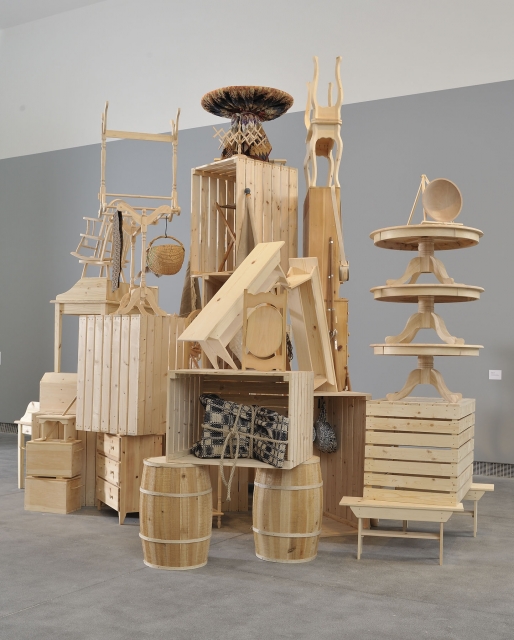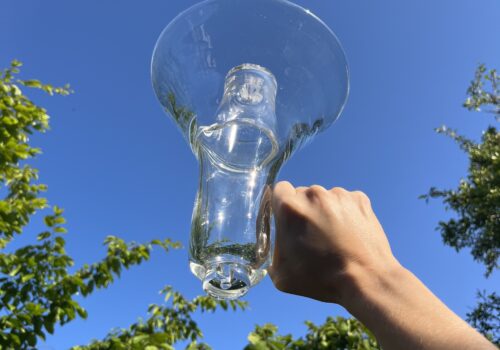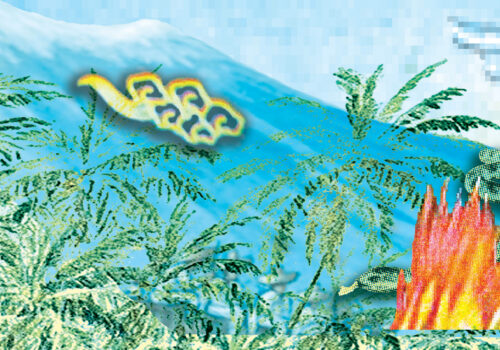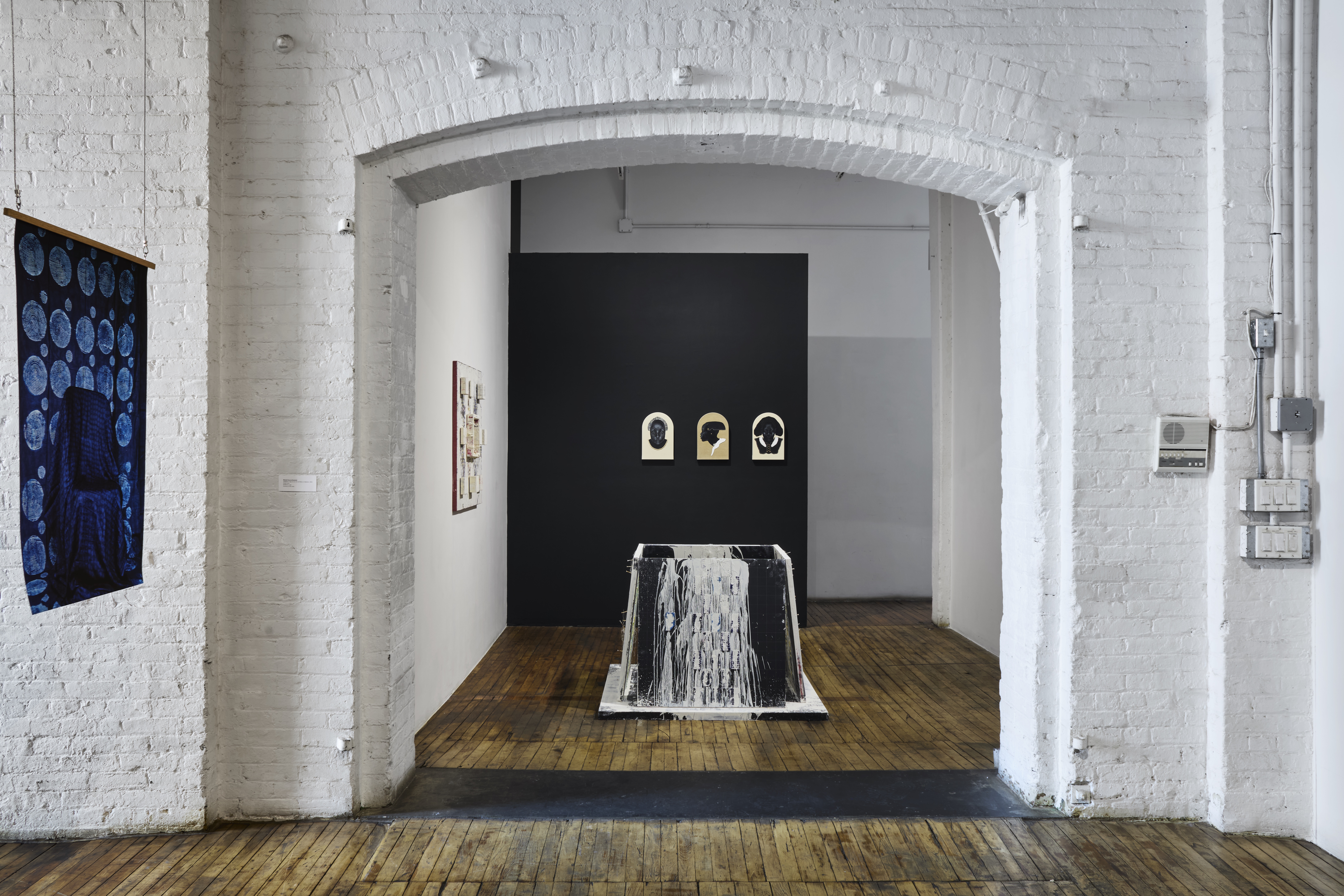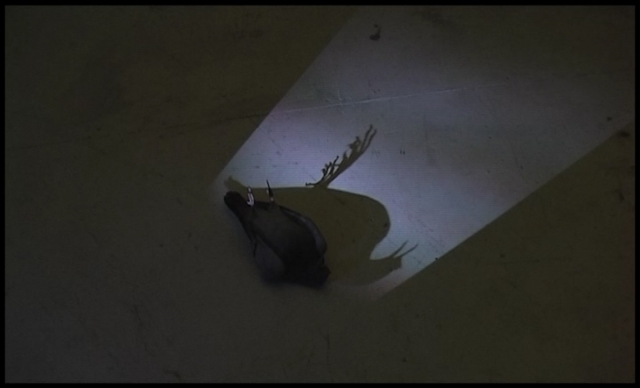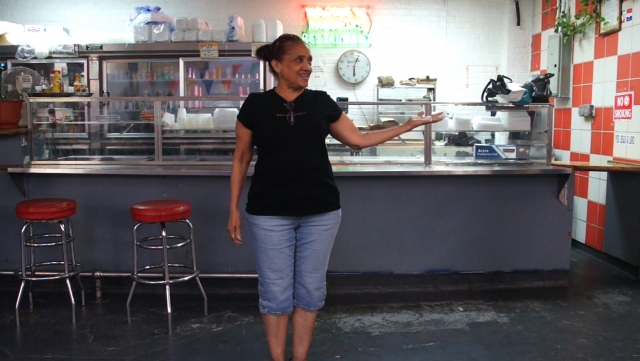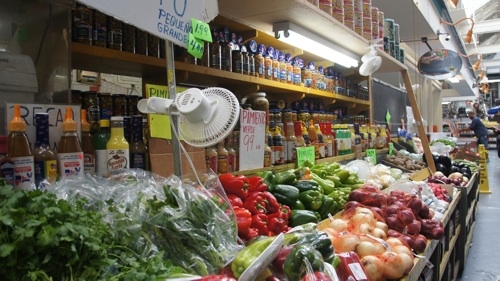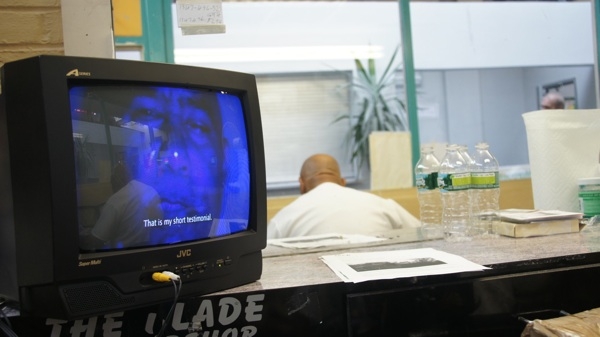Body & Soul is the first collaboration between ISCP residents Francisco Montoya Cázarez and Yu-Hsien Su. Body & Soul combines a series of sculptural and video installations with culturally specific workshops that engages and provokes ideas in Moore Street Market. After a series of site visits to the market, both artists were fascinated by the various vendors and initiated a series of conversations in order to help them realize projects for their booths. These conversations evolved into a relational and discursive project, Body & Soul, which focuses on the separation and interconnectedness of the two entities. Cázarez and Yu-Hsien instigated a series of participatory projects; from a commercial for a spiritual healer woman who operates a booth in the market, to allowing a barber to take center stage in a monologue style video where his life story becomes the focus of the work. Moreover, both the artists became interested in having one of the market vendors, a dance instructor, construct a series of workshops to learn the traditional dance Bachata from the Dominican Republic. All of these investigations and artistic interventions will be explored this summer at the market. Participating vendors include Neida´s Beauty Salon; Botanica La esperanza; AC Tropical /Installation; and Ramonita’s Restaurant.
Francisco Montoya Cázarez explores his personal cultural identities, Mexico and Germany, through various materials and actions. Cázarez is interested in how the two cultures both relate and yet confront each other. In a recent video, Cázarez juxtaposed two culturally specific situations with one another; a spiritual healer woman within the Sonora Market in Mexico City and a search for the German nuclear waste containers situated in different parts of the country (Gorleben, Asse and Morsleben), enabling the viewer to consider two distinctly different variations regarding notions of energy. Cázarez’s work not only attempts to create large-scale sculptural structures that reference significant cultural vernacular to his native country, Mexico, but also addresses the tumultuous political and social situation within the country.
Taiwanese artist Yu-Hsien Su’s work focuses on a unique understanding of the everyday from the simple detritus to a range of individual portraits. He is curious about how reality is constructed or adhered to in people’s daily lives. Su focuses primarily on creating a series of portraits, where the subject matter is a series of desolate people or individuals leading barren lives with a sense of non-existence, which is often highlighted and put front and center. Additionally his work allows for a humor to be captured in this constructed reality. For instance in Plastic Man (2012) Su filmed and produced a record for a band of seemingly ordinary Taiwanese individuals standing on a plastic recycling dumpsite. The two worlds are merged utilizing the a recognizable music video trope while having a recognized dumpsite landscape in the background, but the band themselves is made up of non-musicians and instead focuses on their individualness as being representative of the common person. Su captures an intimate reality of his subjects by constructing and adhering to various rules, forms, games, or recognized perceptions. The act of capturing these individuals with a video camera allows Su to highlight the distance between reality and the perceptions of his subjects.
